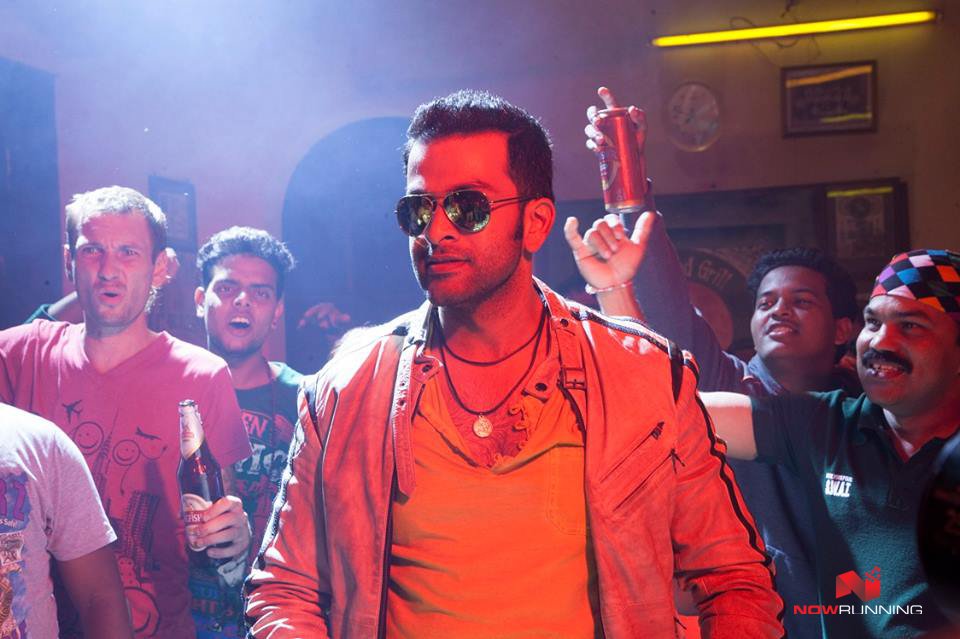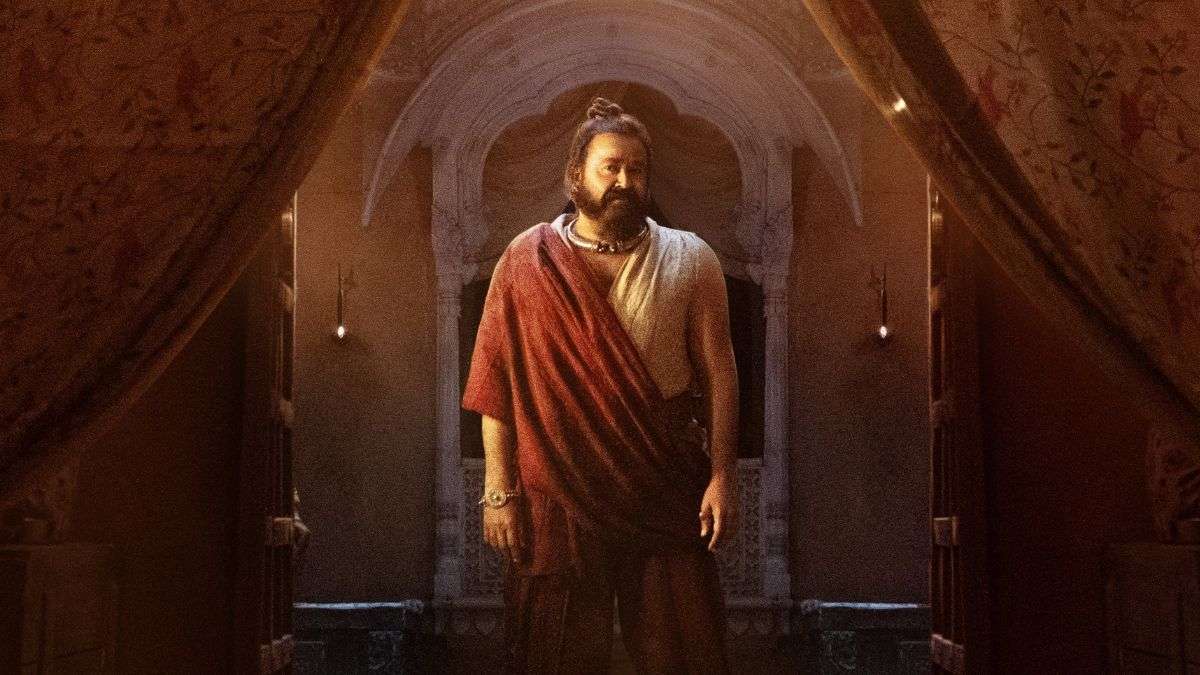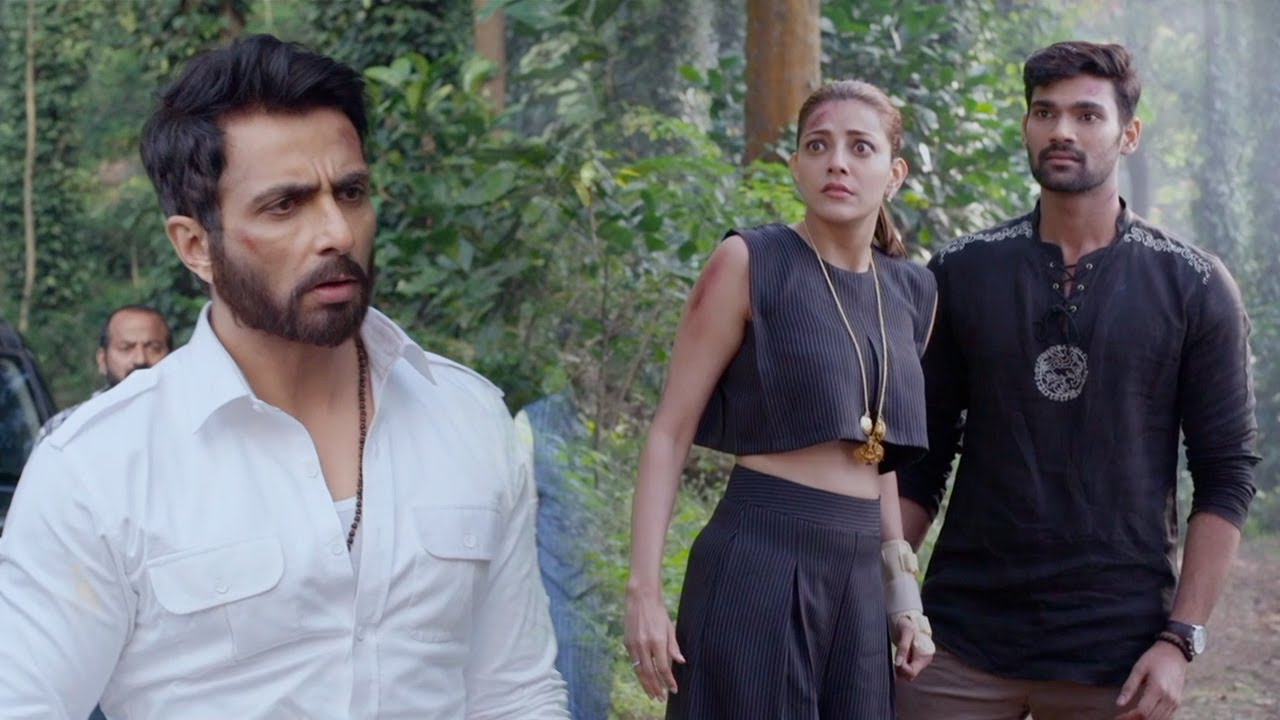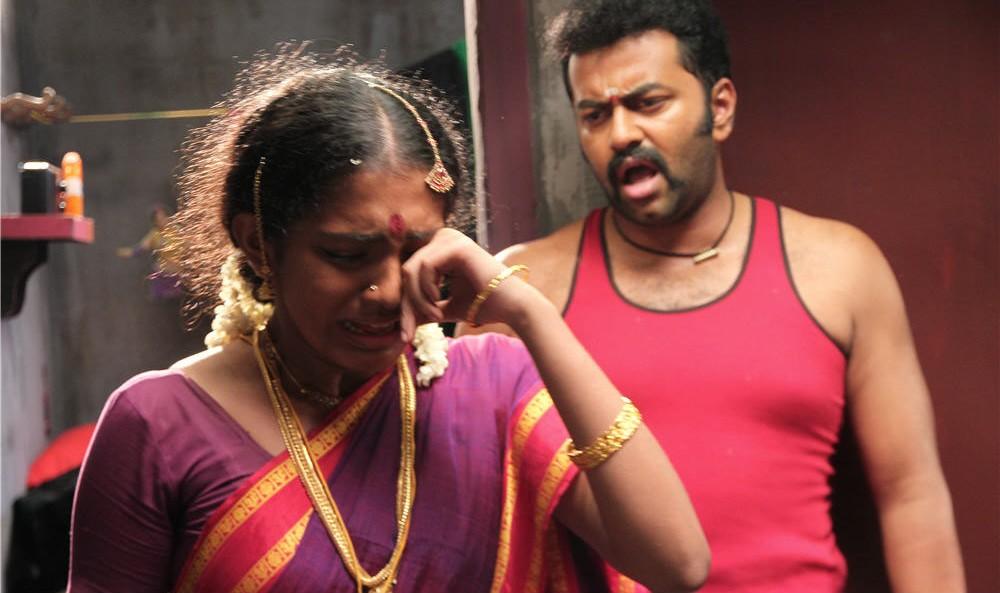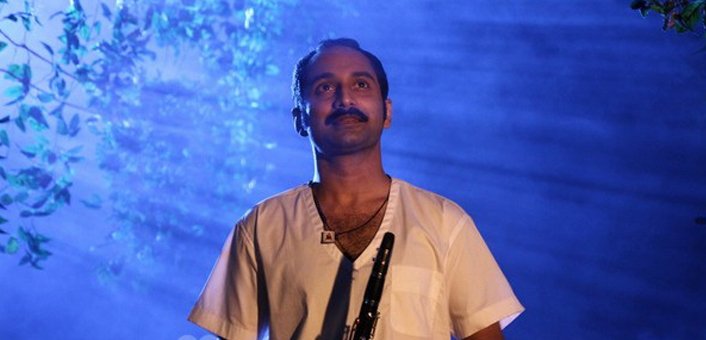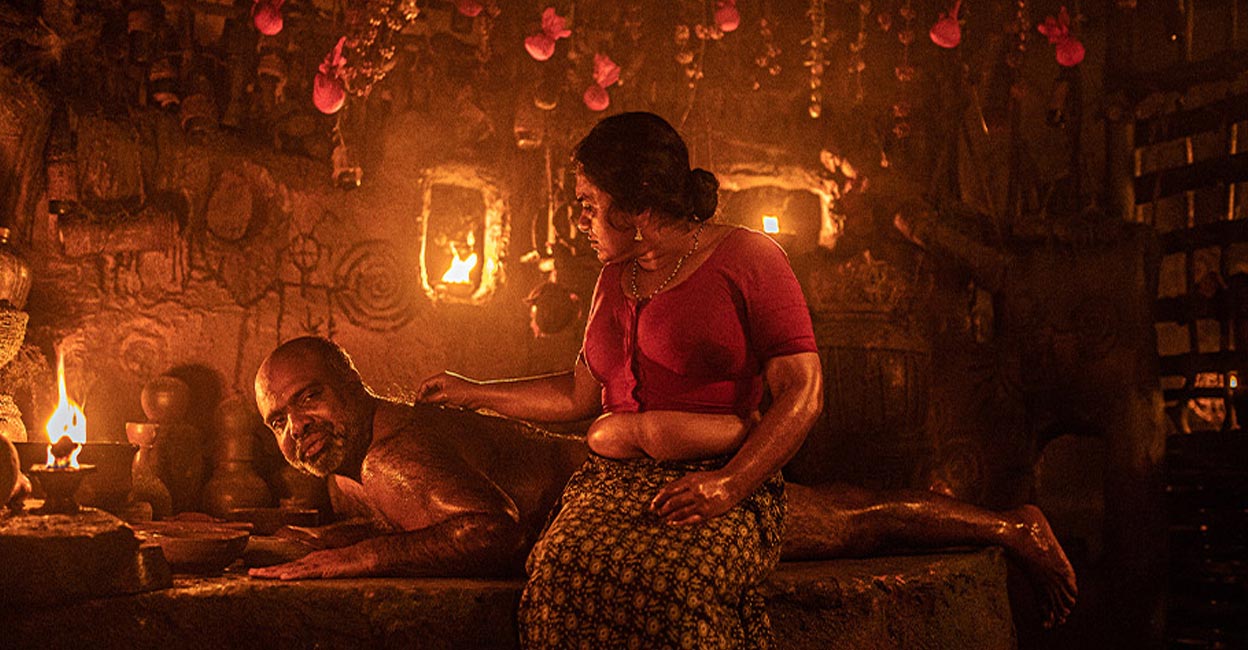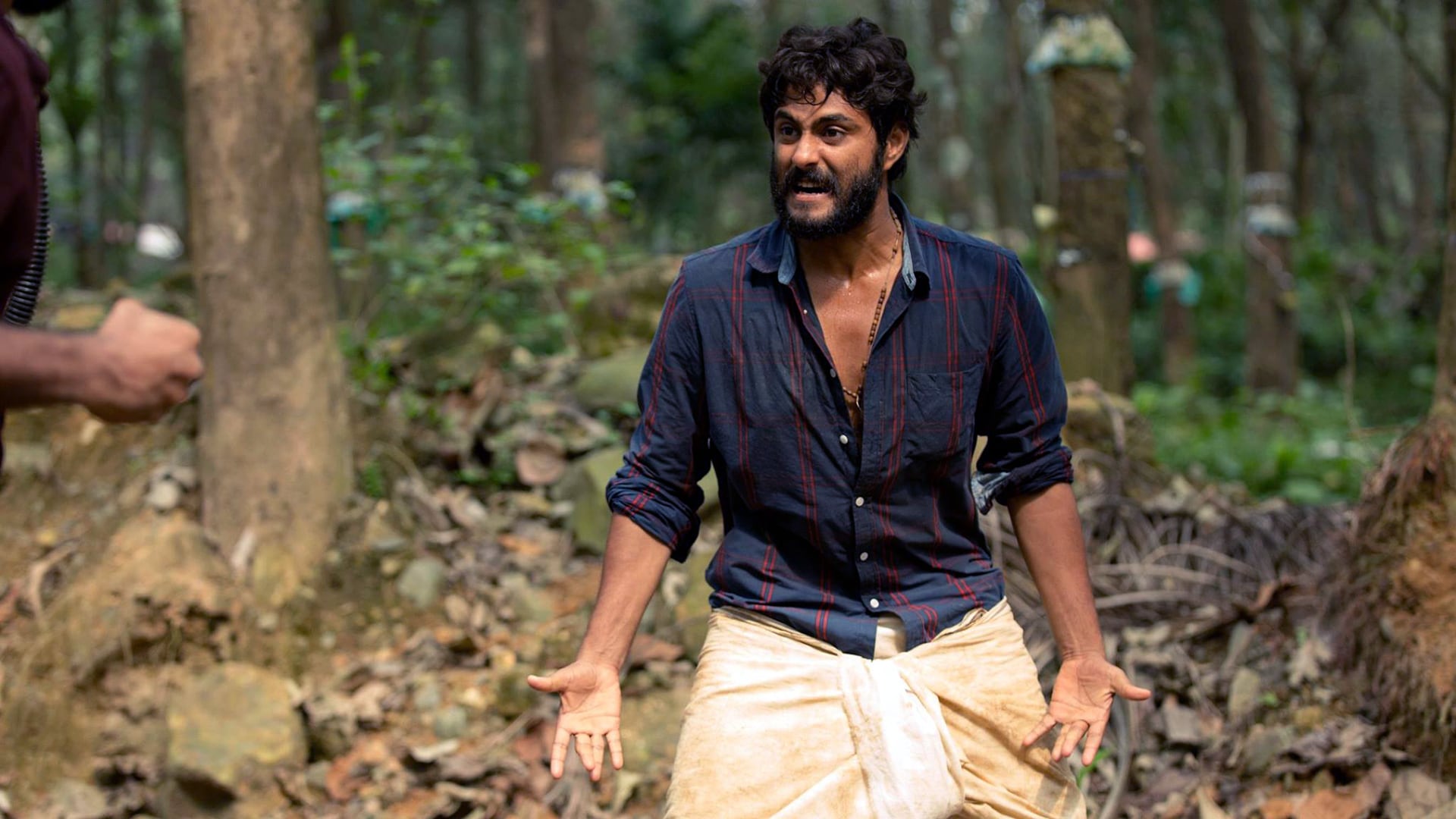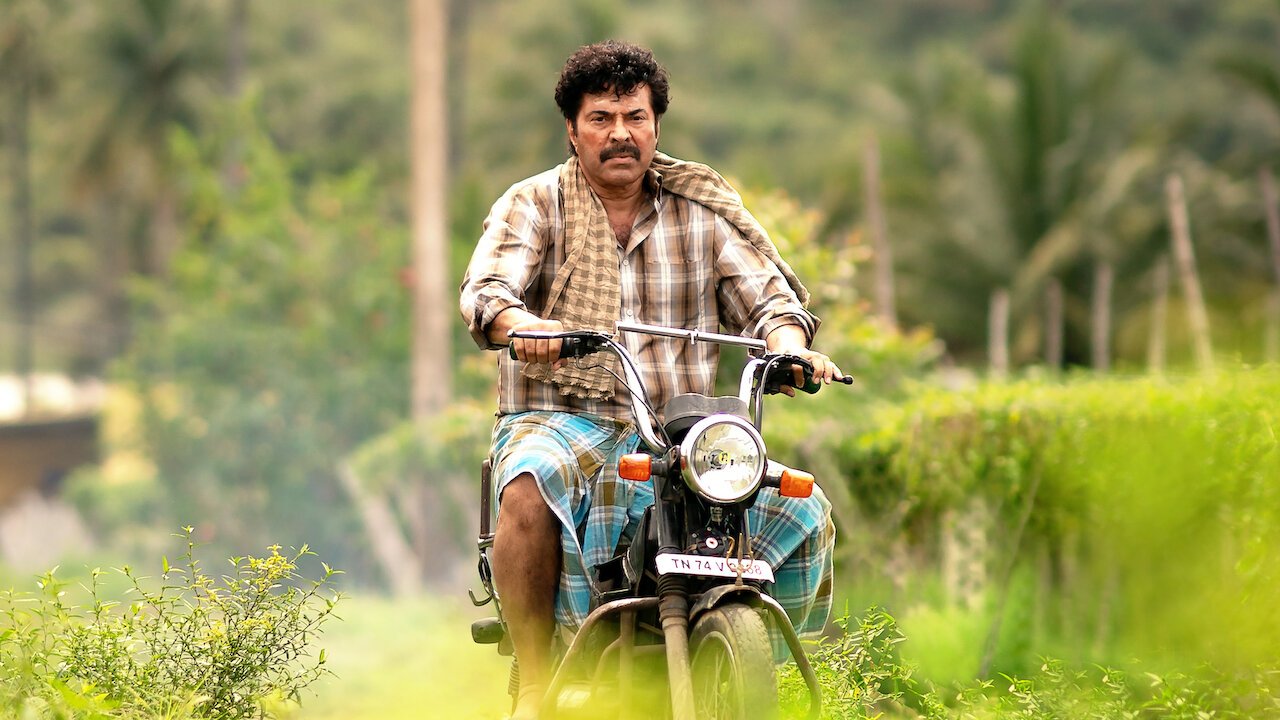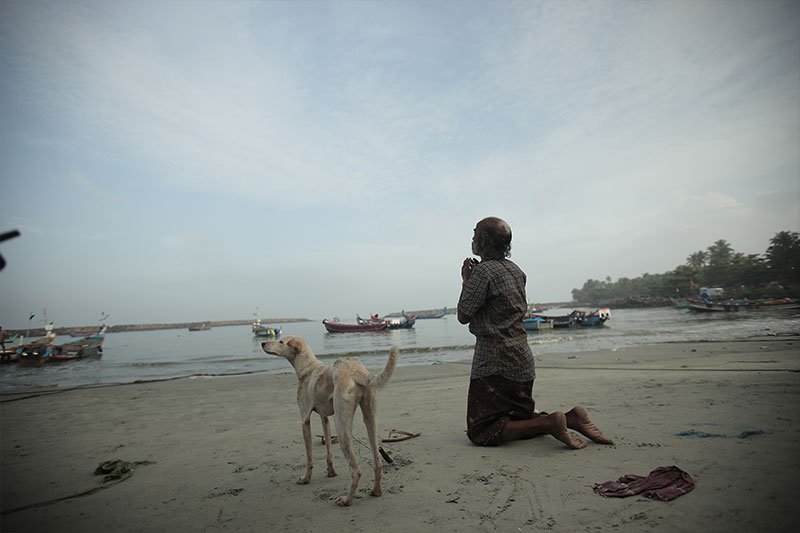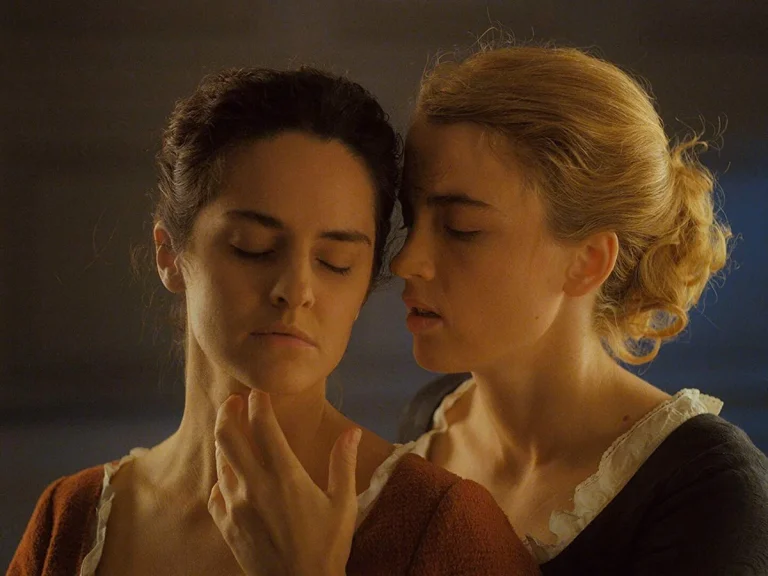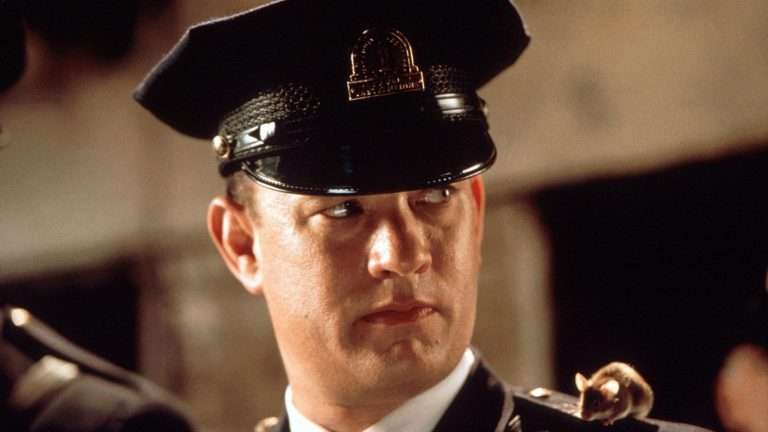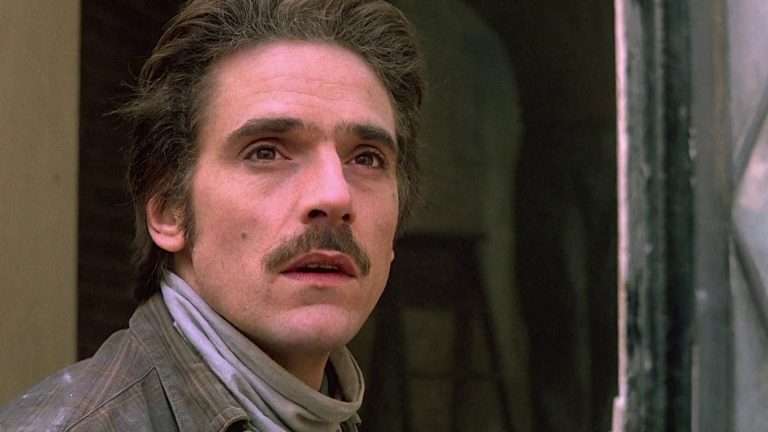A masterful filmmaker testing the limits of conventional, mainstream films with his experimental storylines and unmistakable flair, director Lijo Jose Pellissery has recently emerged as an exciting new voice in Indian cinema. With 9 films under his belt so far, some of which have garnered national and international acclaim, Pellissery’s idiosyncratic style is not hard to notice. And for a good reason.
Utilizing non-linear narratives, interweaving stories, and a multitude of characters, each with their own quirks and nuances, to explore offbeat and often challenging themes, Pellissery directs with a storytelling prowess that’s consistently surprising and thoroughly engaging. All of his films are crafted with impeccable attention to detail, from the immersive cinematography to brilliantly choreographed action and musical pieces, each following a specific visual style that is special to its story.
Whether it be a peppy, joyous, and heartfelt love drama or a dark, grimy, action-packed examination into the innate animalistic urges of men, Pellissery doesn’t stick to genres but brings his twist to it, dabbling with themes and ideas that allow him to daringly unleash his boundless artistry and, at the same time, giving moviegoers a much-needed breath of fresh air.
Born in the Thrissur district of God’s Own Country, Kerala, Pellissery initially started off as an ad filmmaker and got his big break with his debut feature, Nayakan. Since 2010, his films have proved to be a trendsetter, joining the likes of Dileesh Pothan, Rajeev Ravi, Aashiq Abu, Sameer Thahir, and other contemporaries for ushering in a New Generation of films in Malayalam Cinema that are characterized by its near arthouse, subversive themes, and unique narrative techniques but honed for a commercial audience.
And LJP, as movie buffs lovingly call him, is spearheading this movement to new heights.
10. Double Barrel (2015)
Take the brash comedy of a Guy Ritchie film, combine it with some of Quentin Tarantino’s deliciously fun aesthetics, add a hyper-energized dash of Edgar Wright’s tight editing, mix it well with the wackiness of a typical masala entertainer, and you get Double Barrel; a frenetic, absurd, rainbow-colored gangster flick that’s part action, part parody, part comedy, but wholly an insane rollercoaster of a film. At times incoherent but self-aware of its unapologetic goofiness, LJP has crafted an ostentatious visual spectacle that may come off as excessive but stands as a testament to his mastery in multi-narrative storytelling.
What is it that brings a bounty hunter with an orphan child, a bunch of hyperactive hooligans, three gangs, and a random honeymooning couple? A pair of precious stones that are worthless if one is without the other, aptly named, Laila and Majnu. Set in sunny Goa, Don is offering the stones for sale to prevent Gabbar, his son, from getting his hands on them. Paancho and Vincy, two lowly thugs, agree to buy them, but there’s a hefty price tag on it.
They’re given one week to procure the funds, so the duo decides to borrow the money from a few gangs. But the word of the idle stones spread like wildfire, attracting some unsavory people who were eager to get a hold of them. Things spiral out of control once Paancho and Vincy secure the money, setting into motion a series of events that’ll bring a bunch of seemingly isolated storylines into a massive gang war, stacked with shootouts, explosions, and an unhinged number of slow-motion sequences.
Similar Read to Lijo Jose Pellissery Films: Every Anurag Kashyap Film Ranked
It’s clear that LJP is having fun with this film. Right from the outlandish characters, suited up in their steam punkish outfits to the over-the-top, slapstick humor, Pellissery’s flamboyant direction and the silly premise are a match made in heaven. From a fight scene that plays out like a game of Mortal Kombat to the bonkers climax that’s populated by an uncountable number of Mad Max-looking thugs, shooting and screaming, the film sticks to a highly-stylized aesthetic that bursts with color and screams with energy.
Scenes are innovatively shot, drenched in neon or lensed sometimes with sepia or red filters, complimented by fast-paced editing and cinematography, adding up to a maniacal, Pulp Fiction-esque watch. But Double Barrel loses steam halfway through its two-and-a-half-hour runtime. Unable to retain the high it establishes in the first act, the parallel storylines eventually drag on and are, ultimately, tied up clumsily in the third act, further aggravated by the constant barrage of low-brow humor and flashy visuals. Nevertheless, Double Barrel is an insanely kooky ride, with action and comedy guaranteed.
9. Malaikottai Vaaliban
Malaikottai Vaaliban sounds great on paper; a fantasy film inspired by classic Westerns and Indian folktales, shot with the nerdy extravagance of Wes Anderson by way of Amar Chitra Katha comics. Add to the fact it has Mohanlal playing the titular role, a vagabond wrestler whose only purpose is to beat his enemies into a pulp, and you’ve got a formula for success Again, great on paper. But where LJP falters is in creating a cohesive, well-paced narrative to support these elements. Great fantasy films are hinged on great writing more than world-building; style can only pull the weight of a narrative so much.
Malaikottai Vaaliban, in reality, is an overlong, headache-inducing rollercoaster of a fantasy flick that completely butchers a novel idea. Technically, it’s utterly beautiful. Unique CGI, Madhu Neelakandan’s incredible cinematography, sets filled with life and color, oddball characters and their odd humor constitute an interesting, subversive take on the oral histories of India. But the story trudges, a little too slowly, and ends with a set-up for a sequel despite the story being a series of Vaaliban’s interactions with the world he’s in.
Perhaps redemption lies years ahead; Malaikottai Vaaliban has all the makings of a cult classic. It was critically-panned, performed poorly at the box office but there the LJP fanbase is forgiving of this ‘misfire’, so the harsh judgement will wane in retrospect. Perhaps, Pelissery’s ambition got the best of him; he flew too high but the final result is a spectacular blaze worth giving a shot.
8. Nayakan (2010)
Lijo Jose Pellissery arrived guns blazing into Mollywood with his gripping revenge thriller, Nayakan. Teeming with his signature intensity, LJP’s explosive debut feature showcased his style in its infancy, presenting his blunt, unpolished creativity while experimenting with various narrative techniques, most of which will go on to be a major element in all his films.
The story follows Varadanunni, played by a formidable Indrajith Sukumaran, a Kathakali artist-cum-hitman, and his relentless quest to exact revenge on Shankar Das alias JS, a terrifying magician don, who mercilessly killed Varadanunni’s father and sister for witnessing a murder. Under the guidance of a Don Corleone-esque figure, Vincent Karnavar, and his father’s right-hand man, Ramankutty, we see the meek Kathakali player embrace his true colors and fight all obstacles to kill JS, culminating into a near whimsical albeit electrifying climax.
Similar Read to Lijo Jose Pellissery Films: Every Sriram Raghavan Film Ranked
There’s an unwavering energy in Pellissery’s direction, right from the dizzying cinematography to the unique characters, making it tautly paced and engaging from the get-go. Jumping between flashbacks and backstories, the film is cleverly split into segments named after the acts of a Kathakali play, right from the Purappad, designed to introduce the players of the story to the rising action of the Kalasham. The performances, although over-the-top and campy, merged well with the overall pulpy tone of the film.
With an opening scene that’s a direct nod to Amores Perros, Pellissery’s complex narrative takes inspiration from Alejandro Gonzalez Iñárritu’s Death Trilogy, renowned for its unorthodox, non-linear storytelling. Despite its original approach, Nayakan does suffer from its drawbacks, mostly from its tacky technical aspects and over-bloated story, a result of being commercialized for its audience. But it’s a fine effort nonetheless and became one of the seminal films that kickstarted the new age of Malayalam Cinema.
7. City of God (2011)
A bold, ambitious work of hyperlink cinema, emotionally charged and smartly written, Lijo Jose Pellissery’s sophomore feature is a fresh and experimental crime-thriller that sees the director developing his singular style. It’s got all the elements of a typical LJP venture; a gritty plot, intriguingly connected narratives, and an ensemble cast, for City of God is, basically, an exercise for Pellissery, sharpening his skill in multi-narrative storytelling in the vein of commercial entertainers.
We follow the inter-connected stories of a series of individuals in the city of Cochin. Swarnavel is a Tamil migrant laborer who’s working at a construction site. Hardworking, spry, and with a happy-go-lucky attitude, Swarnavel has feelings for Marakatham, who works with him. On the other side, Sony is a real estate businessman who instructs his right-hand man, Jyothilal, to kill his competitor. The wife of the competitor, Viji, recognizes Jyothilal and starts plotting a scheme to get revenge. Parallel to Sony’s story is the character of Suryaprabha, an up-and-coming actress who’s been in Sony’s sight for a while. These narratives collide with each other, literally and figuratively, in a car crash that’ll determine all the characters’ fates.
Similar Read to Lijo Jose Pellissery Films: 25 Greatest Malayalam Films Of All Times
Lijo Jose Pellissery takes leaps in developing his style here, handling this complex story with utmost precision and finesse. It’s a stellar improvement from his debut film Nayakan, both sharing a non-linear structure whose major conflict starts with a car crash, albeit the latter is less daring and more mainstream, for in City of God, Pellissery is more mature in his approach, bringing the pulpiness down a notch, holding back on spoon-feeding exposition and demanding complete attention from the viewer.
The inspiration from The Death Trilogy is more evident here, the execution akin to 21 Grams with its non-chronological and non-sequential storytelling. The performances are what keeps this film afloat, each character is nuanced and hard-edged to give a sense of unpredictability to their actions.
The cinematography is reminiscent of Steven Soderbergh’s Traffic, which, coincidentally, follows a similar narrative structure, with its changing color palettes and emphasis on hand-held shooting, injecting a good deal of tension and energy into the film. The nearly 2-and-a-half-hour does take its toll on the viewer, but City of God is a novel attempt at hyperlink cinema, and it’s a significant film in Pellissery’s filmography as it solidified his then-budding directorial expertise.
6. Amen (2013)
Lijo Jose Pellissery takes the term “A Divine Comedy” close to heart in this feel-good drama. Centered on the inhabitants of a devout Christian village and the extraordinary events that rile up their lives, LJP whips up a marvelously entertaining film, served with dollops of rib-tickling comedy while exploring themes of spirituality, religion and love through a simple yet effective storyline.
Channeling his inner-Emir Kusturica, Pellissery lets his imagination run wild, both in terms of technicalities and word-building, crafting a heartfelt, carnivalesque extravaganza stacked with sensational musical numbers and a moving story that adds up to a warm, pleasant, and unproblematic watch. Kumarangiri is one of those places we’d hear about in a fairy tale or a bedtime story. A beautiful, quaint village smack dab in the Kerala backwaters, this humble settlement is home to a community of religious simpletons that have a fair share of the insane living among them.
Similar Read to Lijo Jose Pellissery Films: 10 Best Fahadh Faasil Movie Performances
Despite the frequent fights and occasional disagreements, if there’s one thing, all the white-clad folk of Kumarangiri can believe in, its God and the word of the church. We follow the story of Solomon, a talented clarinet player who has failed numerous times to enter into the Gee Varghese church band. The band has been going through a slump, losing the ever-rolling trophy to the Matha Mariam band of the neighboring village.
But scarred by a past tragedy involving his clarinet maestro father, the young Solomon commits blunders that get him rejected from the band. His problems are further aggravated when the love of his life, Shoshamma, is getting married off soon, and the church band is about to be disbanded by the community. But that’s about to change. Enter Vincent Vattoli, a suave, modern-clothed pastor who becomes the talk of the town and tries to make things straight for Solomon’s life.
Amen sticks out like a proverbial sore thumb in LJP’s filmography. A box-office hit that propelled Pellissery’s career into the limelight, Amen sets the tone straight with its cheeky opening sequence that follows a feud between two families, started over a feces-filled gold-covered packet and the culprit being the local postman who did it for fun. Pellissery’s style is carefree and rustic, favoring a family entertainer vibe more than his usual eccentric flair.
The world he creates is bubbling with chaotic, dreamy energy that never fails to immerse the audience as we witness these bizarro characters go along in their journey. Fahad Faasil as the mopey, wide-eyed Solomon is a treat to watch, along with Indrajith Sukumaran standing out as the charismatic Vincent Vattoli. The technical side of the film is where it shines, from the dynamic, free-flowing camera movements to the feet-tapping musical numbers, adding to the overall zaniness of the premise. The hyper-local setting may not always connect with the viewer, but Amen is a towering reminder of Pellissery’s technical proficiency and versatile style.
5. Churuli (2021)
Cruising on the well-deserved acclaim of the gritty and inimitable Jallikattu, Pellissery’s next feature takes complete liberty of his then (and now) revered filmmaking ability — his unconventional style, non-linear narratives, and atmospheric stories were gambles which proved to be successful in the box-office. Pellissery found the equilibrium between engaging commercial cinema and provocative arthouse exuberance. His films had what it took to enjoy the ride and enough brain feed to chew on when it ended.
The audience was craving for more, recognizing his incredibly singular vision and subversive storytelling techniques. They waited with bated breath for a fresher, game-changer of a film, more outrageous than Jallikattu, yet not enough to be considered as the benchmark. The first teaser of Churuli felt like he had another in his chamber; it stoked curiosity and excitement with its cryptic visuals. Sreerag Saji’s pulsing alien score solidified the tone brilliantly: eerie, uneasy, like an enigma waiting to be solved by the audience. Birds-eye shots of hilly forests, unidentifiable men with peculiar headgear, men running, men staring, men holding serious things and doing serious things and spirals. Lots of spirals.
It was an invitation to enter a magical world where the laws of reality fail to hold true, a deadly forest holding a terrifying secret. But when it was released, it was met with a lukewarm response. Some considered it an expletive-ridden, oddly paced, a half-baked thriller that barely lived up to its sci-fi premise (the ‘sci-fi premise’ claim is baseless as a few frames cannot be considered as an integral part of the film).
Others considered it a filmmaker projecting his unfiltered cinematic vision on screen; here was a director playing with his creative freedom to create an audacious, jigsaw puzzle of a film. But say this to an LJP fan, and they’ll probably nod with a resounding agreement: Churuli is Lijo Jose Pellissery’s most divisive film yet.
An impenetrable enigma cloaks this head-scratcher of a film. Churuli is a head-spinning inquiry into, well, that’s kind of complicated to put into words. Pellissery works on a rather elementary plot, replete with mysticism and magic, and it’s absolutely gripping. Undercover cops Anthony and Shajivan (we only know them by their false monikers) are on a mission to catch Myladumparambil Joy, a wanted criminal.
They get the information he’s hiding in the faraway village of Churuli. It takes a long and winding jeep ride through the forest to reach Churuli, with only a bridge connecting it to the modern world. Under the pretext of working as laborers on Thankam’s farm, they infiltrate the hamlet, but Thankam’s out of town, so they work at the village toddy shop headed by the vile Phillip. Anthony and Shajivan realize this ain’t like the typical Indian village; the sex ratio is skewed to more men than women. The men are all criminals with aliases. Strange happenings occur, and they see visions and watch beings walking around. And the duo begin their slow descent, or spiral, into insanity.
Similar to Lijo Jose Pellissery Films: Churuli (2021): A Transversal of Understanding Through the Debauchery of Language
A wickedly dark portrait of the acrid depths of toxic masculinity; an examination into the bestial side of men, the yearning to remove the shackles of civilization; our innate capacity of evil; the shadow of man consuming his ego, the propensity to indulge in hedonism and depravity; a very Malayalee ‘The Twilight Zone’ episode with all of this being held on another planet and controlled by aliens like an experiment; Churuli sees its themes and ideas chasing each other’s tails to create a disorienting whirlpool of madness, chaos, and intrigue.
Pellissery has carved a niche with writer S. Hareesh to explore the mysterious sides of the human condition, the facets impenetrable to the light of rationality. Churuli is a sinner’s paradise, a subhuman congregation of low-lives reveling in depravity. And from this base of an idea sprouts interpretations. It’s incredibly exciting to entertain the wildest of thoughts. But the ideas that entertain and enshroud its mystery consume it to the point of confusion; the central puzzle is not clearly conveyed. And you’re unsure as to what questions you were asking in the first place. It’s beautiful on a technical level, Pellissery makes no mistakes there.
But the why of things is definitely vexing. While the themes weren’t ambiguous, there was too much left to interpretation and without the required treatment needed to constitute an answer. Of course, I speak from a purely subjective standpoint; my dislike for certain parts of the film, more particularly the climax, just edges my appreciation. It’s no coincidence that it holds a median position in this list.
Madhu Neelakandan’s cinematography is eye candy. He captures the geography of the setting with absolute finesse. In retrospect, Churuli might age better than all his other works. A challenging watch but a thoroughly rewarding albeit perplexing one. Especially if you’d like to acquire a thesaurus worth of Malayalam swear words.
4. Jallikattu (2019)
All hell breaks loose in Jallikattu. A searing audio-visual assault to the senses, relentlessly kinetic, unabashedly grimy and expertly shot, LJP goes all-out insane for this story of a buffalo that wreaks havoc on a small village. An exhilarating, almost electrifying energy pulsates from the screen as Pellissery’s penchant for capturing chaotic imagery flourishes in this allegorical bedlam on toxic masculinity and male chauvinism.
Like the feral animal let loose on screen, Jallikattu is just pure cinematic anarchy you cannot take your eyes from, fast-paced, dirty, angry, violent and never giving a second of respite.
From the anxiety-inducing cinematography to the haunting sound design, Pellissery is at his peak here, flexing his knack for harmonizing visual and narrative storytelling for one crazy ride, gripping from the opening frame, laced with an underlying satire and closing off with a climax of apocalyptic proportions, one I simply cannot put in words. The opening montage gives us the routine of the inhabitants of a not so typical village.
Also, Read: 6 Indian Films That Could Have Made It To Oscars 2021
Everyone’s minds revolve around one thing: meat. A village whose greatest enjoyment is meat, who’s first priority before church and work is meat; a village that cannot live without the taste of meat. Like clockwork, everyone gets a bag filled with fatty cuts of beef, first thing in the morning, and then go on with their day.
Pellissery conveys this through precise and sharp editing, complimented by an a capella score, grunting and clicking and humming. As expected, business is booming for butcher ‘Kalan’ Varkey. Every day, at dawn, Varkey and his assistant, Antony, slaughter a buffalo and sell the cuts in their modest stall. But when Antony loses grip of the ropes binding the buffalo, the beast escapes.
Plantations are destroyed in its wake and people are getting hurt but what’s more concerning is that there’s no meat to sell. Thus begins a helter-skelter search for the ravaging animal. But as the pursuit becomes desperate, tensions rise, egos clash and jealousy start seething as we witness these men devolve into their basic instincts, just for some meat.
Technically faultless, tautly paced and pregnant with symbolism and political commentary, courtesy of S. Hareesh and R. Jayakumar’s deftly written screenplay, Jallikattu is a smooth 90-minute watch that’ll leave you breathless by the time the credits rolls. Pellissery’s well-intentioned, intelligent direction takes a dig at the acidic masculinity that runs amok in society, the quest for every man to attain the coveted ‘alpha male’ status by leading on a path of self-destruction.
The narrative functions as playground for these themes and ideas rather than following a linear, rigid story-line. And what ties up this fiery fiasco of human nature are the hypnotic visuals. Girish Gangadharan’s camerawork is out of this world. The comprehensible shaky-cam scenes, butter-smooth aerial shots, starkly lit night sequences especially one involving a well, it’s like the camera is an eye in a sea of testosterone, surfing on waves of mindlessly screaming men, giving us a headache-inducing perspective of the maddening mob.
Prashant Pillai’s experimental score is commendable and matched the rawness of the events on screen. An unmissable film and a perfect starting point if you’re interested in exploring Pellissery’s work.
Read the full review of ‘Jallikattu‘ Here.
3. Angamaly Diaries (2017)
Want to know what it feels like to be in Kerala? No, not that ‘serene backwaters and houseboats and coconut trees’ imagery people usually associate the Southern state with. I meant the real, everyday Kerala. Because the opening montage of Angamaly Diaries nail those emotions to a T.
The smiling workers of butcher stalls and vegetable shops, the overcrowded KSRTC buses with people hanging precariously from its edges, the age-old establishments making mounds of parottas and rice, cauldrons of beef fry, chicken fry, pork roast, biriyani, fish fry, payasam of every kind (careful with the drool!), the festivities whether it be Christmas or Onam, celebrated with full splendor, the modest houses, the thriving communities, all the sounds and all the smells.
Hell, not even tourism ads can rival this. A bombastic coming-of-age drama, jam-packed with action and comedy, Angamaly Diaries is an uproarious, colorful celebration of youth and friendship. Following a rag-tag bunch of friends and their shenanigans in the streets of Angamaly, Pellissery’s direction is astutely vivid, creating an observant, slice-of-life cinematic experience that’s sure to immerse you, helped with a banging soundtrack, meticulously choreographed fight sequences and an overall sense of wholesomeness and visceral urgency that’ll make you hungry for more (by hungry, I meant the film and just food in general)
Also, Read: Angamaly Diaries (2017): Food, Romance, Gang Fights and A Little
The locales of Angamaly, a major commercial center situated in the outskirts of Cochin, are headed by gangs or, the more appropriate term, ‘teams’. Groups of young, rowdy men, thick as thieves, the teams have a hand in pretty much everything. After being inspired by his mentor and leader of the New Stars team, Babuji, Vincent Pepe, our protagonist, recruits his friends and establishes a team of his own, the Palliyangadi team.
Pepe is ambitious and wants to start a pork butchery that, if done right, will rake in some serious money. The problem is that the pork rearing in his locale is monopolized by Rajan and Ravi, ex-convicts turned pig businessmen who served time for killing Babuji. Putting bad blood aside, Pepe, agrees to buy his pigs and sell the meat at a mutually agreed price. Conflict strikes when the Palliyangadi boys decide to rear pigs of their own, causing a nasty disagreement that sparks a feud between them and Rajan and Ravi which gets the plot moving.
The beauty of Angamaly Diaries is found in the little things, the nibbles of realism that effortlessly pull you into this bustling world. The drunken antics, the unruly fights that erupt from the smallest prick on the men’s masculinity. Pepe’s romantic flings and relationship with his family. The foodgasmic odyssey our characters venture out for and the usual tomfoolery of the Palliyangadi team, run criss-cross across the main story-line.
Angamaly is the main character of the story, with its food and music and blossoming, rich culture as its centerpiece. And it’s hard not to fall head first into this whirlwind of emotions. The screenplay, penned by Chemban Vinod Jose, a frequent acting collaborator on Pellissery’s films, takes every opportunity to entrench us into the world with a good chunk of the film, focused in setting up and fleshing our main characters as well as the environment they’re in.
Working with mostly non-professional actors, Pellissery’s directing abilities is tested to the limits, bringing out superb, physically demanding performances. Antony Varghese as the hot-headed but affectionate momma’s boy Vincent Pepe is worth a mention. The camera, cranked by Girish Gangadharan, acts like a spectator, grounded in its approach and simplistically shot. There’s an impressive 12-minute unbroken take that constitutes as the climax. If your brand of comedy is loud, brash and dumb, like where the main characters get in a bar brawl, but dressed up as nuns, comic-book characters, Jesus, the Romans, Mahabali, and in costumes of other prominent figures, look no further because Angamaly Diaries gives all of that and some more.
2. Nanpakal Nerathu Mayakkam (2022)
Reality started looking a little differently after watching Nanpakal Nerathu Mayakkam — the world felt a little fast, a little drab, silent and confusing, like I’ve awoken from a dreamy slumber. A candy-coloured tint was removed from my vision and the crushing burden of my existence became apparent.
Yet I was content and certain truths struck a certain way; that the mundane has an unassuming beauty I must toil to extract; that the sweetness of a lie is only momentary and the bitterness of the truth is what we must acquaint ourselves with; that dreams are closer to reality than we think; that life is a series of performances we play out for living in this cruel world; that I was an absolute idiot for not watching this on the big screen and I will never forgive myself for it; that Mammooty showed he’s still the fucking boss, shrugging off the dust of his acting chops with a performance for the history books.
Translated as ‘A Mid Day Slumber’ in English, it’s the cinematic equivalent of those few minutes of peace and clarity immediately after you wake up, and right before your consciousness boots into your system — your thoughts are still ensnared in the dream’s tangle and your first instinct is to distinguish it from reality, the air is crisp, silent and your eyes adjust to the naked light, and the reality which pours in you is pure and straight and untainted by anxieties. You forget the peace which was instilled briefly and go on with your daily life. Nanpakal Nerathu Mayakkam moved in like a dream and made us keep thinking of it. Or was it more like a premonition which we could never shake off?
Nanpakal feels disruptive. The initial years of the Malayalam New Wave saw filmmakers brash and rebellious and provocative, shaking the sedated audience out of the coma induced by late 90s-early 2000s commercial cinema. Films of the era were sterile and simple; film-goers were subjected to family dramas, sappy romances, war stories and comedy films.
The New Wave of directors turned to international cinema to wake them up. These pioneers owed a debt to Japanese, Korean and Mexican cinema. They took inspiration from their innovative narratives which synced brutal action and compelling drama with perfection, their transgressive and innovative stories, and technical finesse. The 2010s have come to an end, and the legacy they’ve created is a bright spot in Indian cinema.
Nanpakal Nerathu Mayakkam is, without a doubt, a recent gem in the ever-changing, ever-expanding roster of the New Wave. But it represents something else; its sheen is striking in an extraordinary way. I feel it’s set to bring some change that’s all set to usher in a new era of film with a higher artistic quality abandoning the need for satisfying commercial needs — a European arthouse aesthetic (a wonky comparison, I admit) overwhelms it. It has the makings of a milestone in the coming years of Malayalam cinema.
Similar to Lijo Jose Pellissery Films: Nanpakal Nerathu Mayakkam (2023) Review: An ‘In Between’ Story That Blurs the Lines between Reality and Dreams
Mammooty centres on James, a pilgrim on his way back home to Kerala from the religious city of Velankanni. James is accompanied by his wife, son and friends and neighbors of his locale. They check out of their hotel, and James notices the Thirukural inscription on the wall: “Death is sinking into slumbers deep. Birth again is waking out of sleep”, explains the cashier, to which James remarks ‘Thirukural’ would be the name of a great play.
The tourists begin their journey back home. All of them doze off after lunch. James becomes the first to wake up and tells the driver to stop the van. He gets down and unafraid and with a purpose, walks along the roads of a Tamil village. The confidence at which he turns corners and strides across the snaking streets, is unnerving, like he’s a resident who’s going back home after work. He enters a house and changes his clothes and addresses a woman as his wife.
He now speaks Tamil, makes coffee for himself and goes out to buy groceries. The inhabitants of the house confront James’ intrusion; he isn’t fazed by it and walks out. The village takes notice of this and soon finds out he’s acting exactly like Sundaram, a villager who went missing a few years ago. The Malayalee tourists wonder where James is and find him consumed in his ‘performance’. They get mad at him but James is convinced he’s Sundaram which aggravates the situation. Who’s who and what’s happening?
Pellissery wields a staggering amount of restraint, unlike the organized and controlled chaos he’s known for orchestrating. The frames are neat and simple, the action is minimal. There is an insistence to capture the character’s movements. It’s a risky move; the audience’s patience is being tested. Pellissery is unafraid to let the camera linger.
The film is composed of static shots (the only instance of a handheld shot is near the climax when Sundaram wakes up from his afternoon slumber). Each shot is gorgeous; like a tableaux, there’s an amazing amount of thought put into the mise-en-scene and blocking of the camera. Each frame feels structured like a play. Theni Easwar’s cinematography ‘paints’, not captures. The sound design must be mentioned. Diegetic dialogue from old Tamil movies playing on a TV, fills up for a background score, the clamor of people, the buzz of insects, the static from a radio all compose a vivid portrait of village life. In fact, it lends the dreaminess a weighted reality.
The core of Nanapakal Nerathu Mayakkam concerns itself with differentiating reality from dreams, the humans we are from the humans we play for others. Each successive scene challenges the audience’s perception of James. Is James really him and Sundaram his second identity or is it vice-versa?
The narrative unfolds beautifully and the truth of the matter comes to fray, the defining question of the film: are we the performances we play for the world, and if so, where’s our true identity? The hat of the philosopher fits snugly on Pellissery’s head; a crystal clear vision of man’s struggle for meaning, the existential dilemmas that quell sleep and peace, pieced out beautifully on celluloid. Pellissery’s most interpretative work is a dream you’ll find yourself remembering more than usual.
1. Ee. Ma. Yau (2018)
The waves of the sea crash loudly against the shore. The trees shake, the wind howls and bellows of thunder ring across the night. There’s a storm coming. And the heavens ready itself to open in Ee. Ma. Yau. A seaside tragicomedy, brimming with realism, profoundly written and potent in its poeticism, Lijo Jose Pellissery catches the emotional complexity of human nature like lightning in a bottle, bitingly funny, staggeringly honest and equally poignant.
A heavy almost asphyxiating feeling of melancholy bleeds through the screen as LJP’s magnum opus is one of patience and subtlety, restraining his usual brand of flashiness for a more pensive direction that thoughtfully and ambitiously explores life, death and everything else in between with touching compassion. A story of a woeful death in an agitated village; what starts off as a son arranging a funeral for his father, evolves into a comedy of errors.
Emotions run high and tensions start to mount, added with the occasional dark humor that’ll get an uncomfortable laugh, as the story twists and turns and closes off with an unforgettable climax. Ee. Ma. Yau is a cruel reminder about the shortcomings of human beings as individuals and as a society.
Similar Read to Lijo Jose Pellissery Films: 10 Great Malayalam Movies To Stream on Prime Video
The film opens up to a static shot of a funeral procession, long, loud and grand, fit for an emperor. We proceed to the sleepy fishing village of Chellanam on the Malabar Coast where Vavachan and his family are the players of this tragedy. An elderly mason who was revered for his carpentry skills, Vavachan’s an enigma even his family hasn’t figured about, going out on long bus trips and coming back home unannounced.
After a fight with a fellow villager, he comes home to his wife, Pennamma, who takes the duck he bought to make a curry. His daughter, Nissa, is busy on phone with her lover and after some time, Eeshi, his son, comes home. Sharing a bottle of brandy, the duo strikes up some healthy camaraderie as they wait for their delicious duck curry. Vavachan tells Eeshi the story of his father’s funeral which was the biggest the village has ever seen.
Placing a wad of cash on his hands, sadly demonetised, he entrusts Eeshi to give him a funeral just like that, magnificent and important. Eeshi doesn’t pay much heed to his father’s morbid wishes and assumes it’s just the alcohol working its magic. But Vavachan’s words come true, a tad bit too early of course, as he drops dead on the floor just a few hours later.
The women of the house start lamenting which gathers the attention of the people around them, and they start preparing for his funeral. Eeshi, along with his friend Ayyapan, go around town, in the dead of night, gathering all the things needed to fulfill Vavachan’s glorious funeral. But obstacles in their path make it seem impossible to reach.
What better way to represent death than a funeral! Writer P.F Mathews’ layers the narrative ingeniously, the central theme of death branching out to family, guilt, fate and religion, relayed masterfully through symbolism with shades of surrealism added here and there to give just enough room for interpretation without being overly preachy.
The pastor who loves detective novels, the gossip-monger with a grudge, the gravedigger who digs his own grave, a pair of card players who can seemingly predict the happenings in Vavachan’s household; the characters are what define the themes, each with their own idiosyncrasies that propel the story forward in unexpected directions.
Pellissery is at the height of his ability, taking all of his signature trademarks and deconstructing it to fit the realism-heavy aesthetic. The confrontations are tumultuous, a sea of people screaming and shouting like the raging waves. Shyju Khalid’s cinematography melds with the mayhem on screen, long hand-held shots and tight close-ups get us deep in the madness.
Chemban Vinod’s role as the stoic, despairing Eeshi is a powerful one, along with Vinayakan as the persevering Ayyapan, the rude, plotting vicar played by Dileesh Pothan and Kainakary Thangaraj as the man who started it all, Vavachan, chipping in equally stunning performances.
The intricate sound design is an inextricable element in all of Pellissery’s film and its presence in Ee. Ma. Yau give life to the controlled chaos on screen, bombarding us with the sounds of rain and wind and dirt and constant lamenting. Pellissery does no fault in the technical side of things and it’s what elevates the story.
Also, [Watch] Churuli Trailer: Another Bewitching Dark Mystery From Lijo Jose Pellissery
The film is bookended by two funerals. One splendid and festive, a funeral that would make Vavachan proud and the other, crude and primitive, the one he finally gets. But there’s no difference between a dog or a mason once they’re lowered six feet deep. Ee. Ma. Yau is, ultimately, about the insignificance of man, the farces we put up and fallacies we make to appear to be important and the absurdness of our mortality. Death, although inevitable, isn’t the end of a mortal’s journey but a part of it. So, go ahead. Mock it with all your heart.

